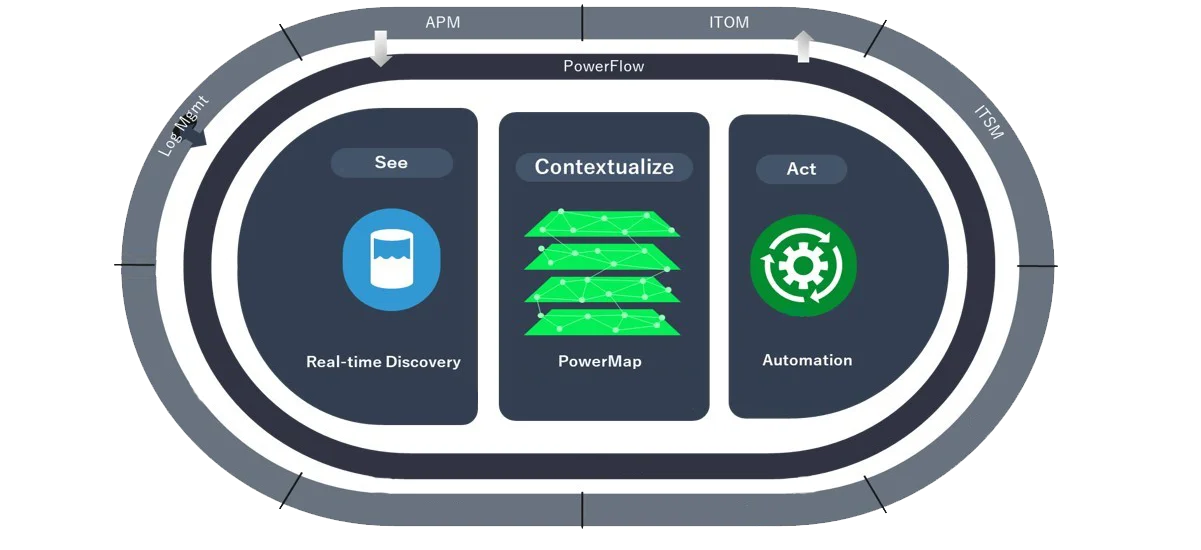AI Ops
From technology to services
By leveraging collected data, AI Ops platforms improve the effectiveness of numerous activities and IT Operations processes, including: anomaly detection, event correlation and root cause analysis (RCA). AI Ops is shifting the focus from technology to services and business, reducing noise (such as false positives) in event analysis.
Thanks to the implementation of AI Ops, companies can determine causal relationships by identifying possible causes of incidents through analysing service topology, machine learning and relating these to navigate the event.
Proactively detecting abnormal conditions and behaviours, detecting trends that could become disruptions prior to service failures, and promoting the automation of low and medium risk tasks: AI Ops strengthens data-driven business operations, focusing on analysing problems and linking them to business impacts.
Concrete responses
AI Ops platforms combine Big Data and Machine Learning to provide concrete responses to real and organic business needs.
Increasing complexity of IT systems.
Rapidly growing volumes of data generated by systems, by the network, and applications.
Increased heterogeneity of the data to be analysed: events, metrics, transactions, data traffic.
Increasing speed with which data is generated.
Increasing speed at which architectures change.
Need to intelligently and adaptively automate recurring tasks.
Overcoming ‘silo’ monitoring to get an overall view of the service.
Cutting-edge partner
Present has identified ScienceLogic as a technology partner to focus on in order to accompany its customers along the path of achieving value resulting from the adoption of AI Ops technologies
ScienceLogic’s qualities
Partnership & reseller agreement.
Training & professional certification.
In-house lab.
The journey towards AI Ops
Together with ScienceLogic, organisations can evolve their method from traditional IT Monitoring towards AI Ops.
SEE: Access to data
in one place
Discover all physical, virtual and cloud IT infrastructure components. Capture and manage all information in a normalised data lake.
CONTEXTUALIZE: AI/ML
for data extraction
Context identification through the discovery of the relationships between IT infrastructures, applications, and business services. Use of context to capture management information.
ACT: connection
to the IT ecosystem
Real-time data integration and sharing across heterogeneous technologies in the enterprise IT ecosystem. Multi-directional integration for reactive and proactive automation.

Why choose ScienceLogic
ScienceLogic’s Single Code Platform, SL1, ScienceLogic SL1 is able to consolidate almost all of the Customer’s out-of-the-box’ products; this can guarantee a saving in terms of time and operating costs. ScienceLogic SL1 provides automated discovery, dependency mapping and runbook automation.
Advantages for businesses
Clients adopting ScienceLogic SL1:
- are seeing an immediate reduction of events by 40%.
- are reducing system level L1 support, because this most of the checks are carried out automatically by the product.
- are finding an average reduction of at least 30% of the time spent on incident resolution through the appropriate assigning of the incident to the correct resolution group which also automatically receives the information for analysis (triage) required by systems engineers.
| Before ScienceLogic SL1 | min | After ScienceLogic SL1 | min |
| Create & assign Ticket | 25 | Create & assign Ticket | 1 |
| Populate ticket fields | 20 | Populate ticket fields | 1 |
| Technically verify ticket | 20 | Technically verify ticket | 1 |
| Facilitate testing | 25 | Facilitate testing | 5 |
| Field service engagement | 15 | Field service engagement | 5 |
| Resolve ticket | 35 | Resolve ticket | 6 |
| Average time | 140 | Average time | 19 |
| …currently just 6 minutes | |||
Use cases
More efficient IT operations
A major international airport needed a platform that could solve a number of problems, including:
- The difficulty of keeping the health of the infrastructure under control on a single dashboard.
- The impossibility of determining the impact on business (and therefore prioritising incidents) deriving from the unavailability of IT infrastructures.
- The difficulty in quickly identifying the cause of service degradation in a varied technological context.
- The difficulty of identifying ‘root causes’ without a complete system topology.
The company adopted ScienceLogic technology and consolidated the monitoring environment by leveraging AI Ops capabilities to streamline IT Operation activities and improve service effectiveness.
Reduction in incident numbers
The IT department of an international airport needed to manage the state of health, availability and risk analysis by unifying information regarding IoT devices, such as the baggage belt, and servers, the network, and applications on a unified display. The goal was to reduce the number of incidents and improve customer service.
By adopting ScienceLogic, the company consolidated all incoming data into a single overview of the business. This made it possible to instantly identify the problem and the cause of the disruption, for example in the event of malfunctioning security scanners. With the solution implemented, the client saw a 50% reduction in the number of incidents in a single year.

